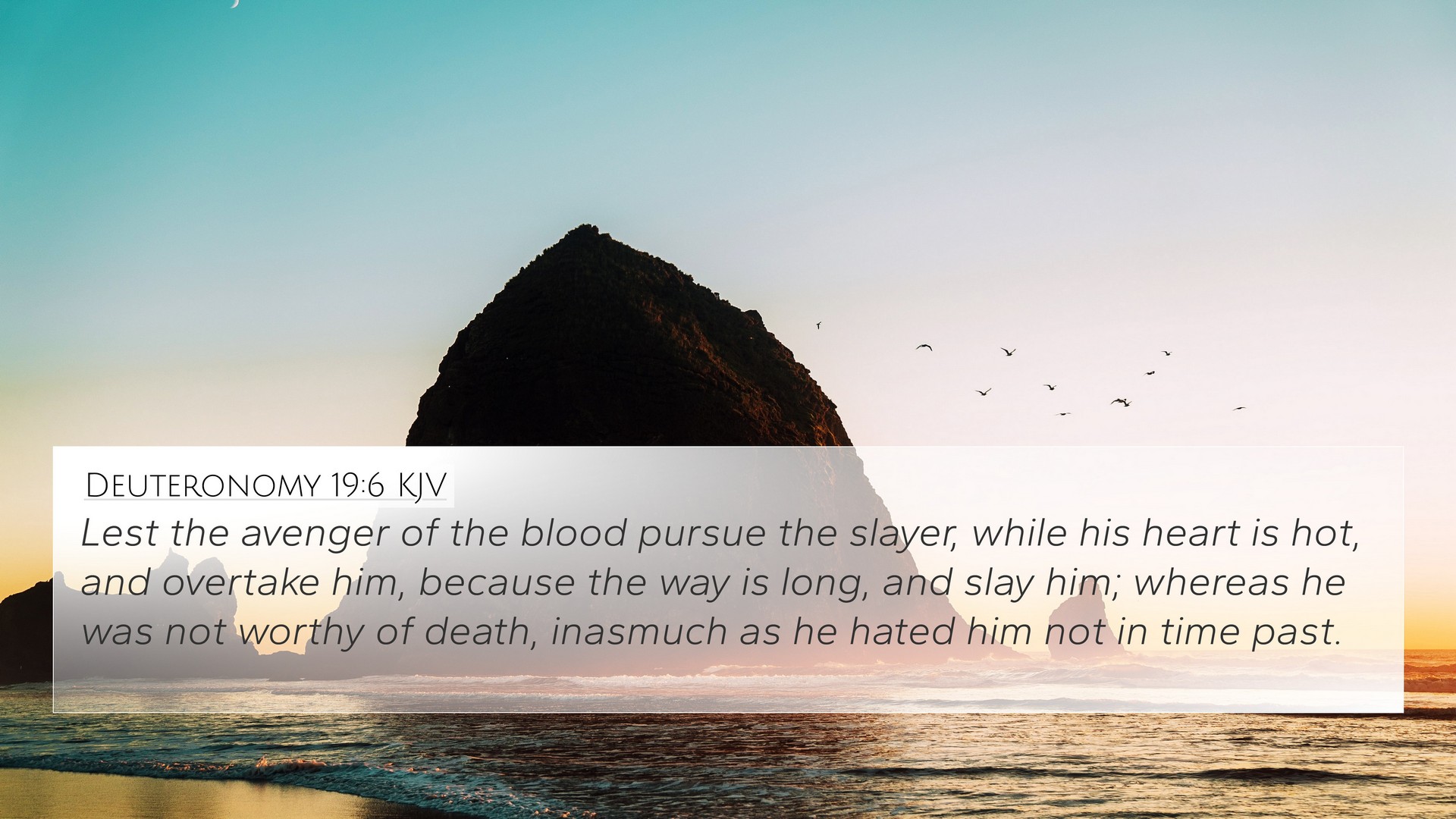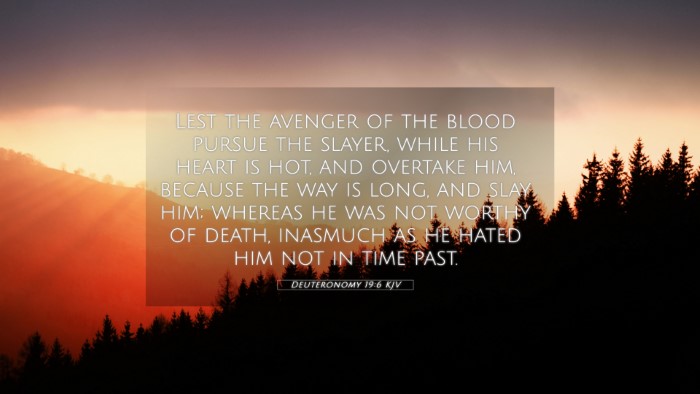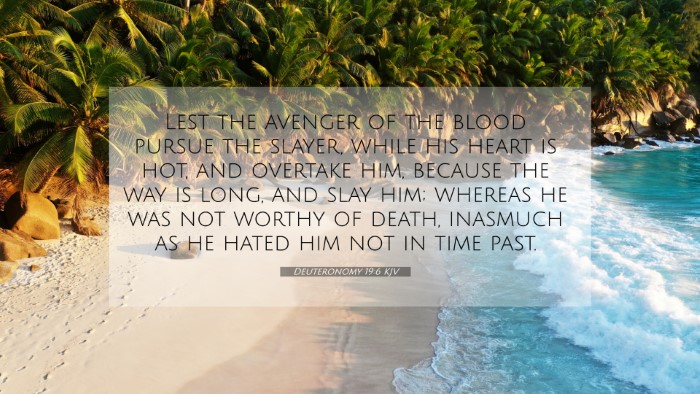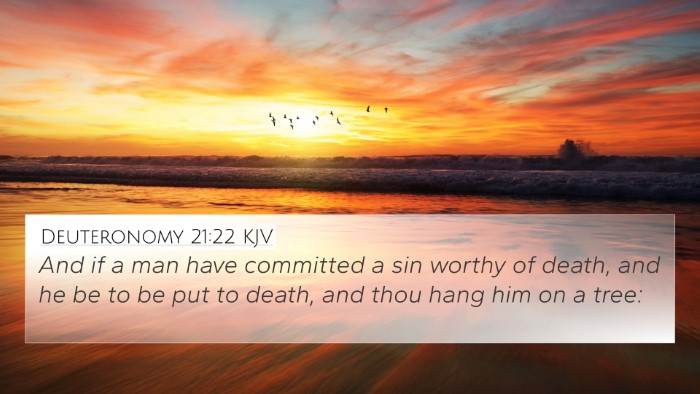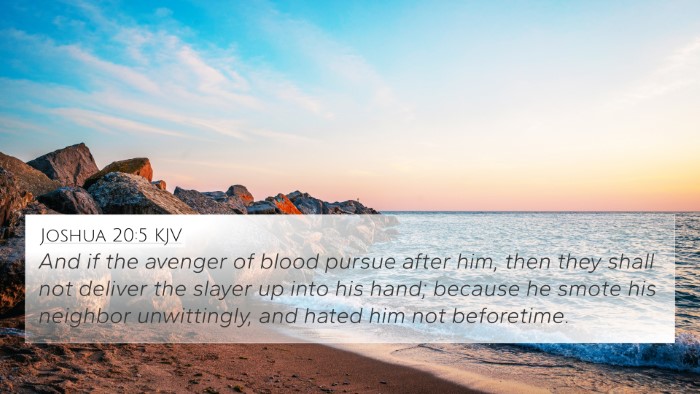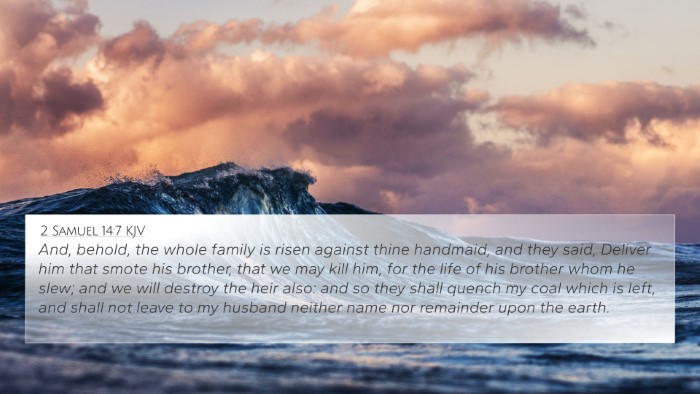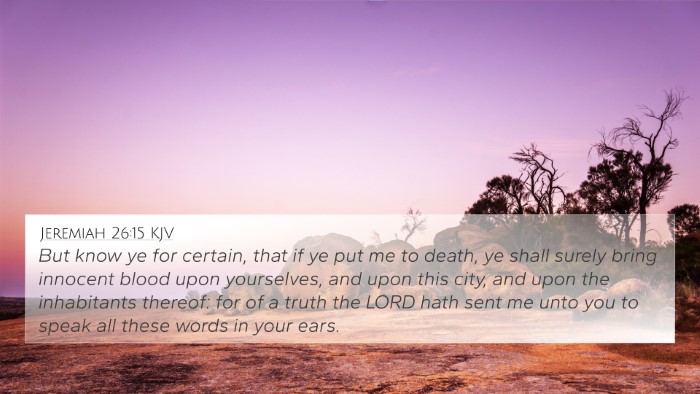Understanding Deuteronomy 19:6
Deuteronomy 19:6 states:
"Lest the avenger of the blood pursue the slayer, while his heart is hot, and overtake him, because the way is long, and slay him; whereas he was not worthy of death, inasmuch as he hated him not in time past."
Overview and Context
This verse addresses the legal framework surrounding those who unintentionally cause the death of another, providing an important insight into the concepts of justice, mercy, and societal order in ancient Israel. The context of this scripture falls within the laws given by Moses concerning cities of refuge, which were established to protect individuals who commit manslaughter from revenge killings.
Commentary Insights
Combining insights from eminent biblical commentators:
-
Matthew Henry:
Henry emphasizes that the unintentional nature of the act must be recognized to extend mercy. He highlights the heart's implication in the broader context of law, noting that societal justice must take into account the intentions behind an act rather than solely the act itself.
-
Albert Barnes:
Barnes points out the gravity of blood vengeance in ancient customs and underscores the importance of cities of refuge as a divine provision for protecting those who kill unintentionally. This creates a structured society where vengeance is tempered by divine law.
-
Adam Clarke:
Clarke delves into the emotional and psychological aspects of the avenger, illuminating the potential for irrational responses to grief. His commentary suggests that the laws given were not only to protect the accused but also to promote peace and reduce cycles of violence.
Bible Verse Cross-References
Deuteronomy 19:6 connects with several other scriptures that elaborate on similar themes surrounding justice, mercy, and the sanctity of life. Key cross-references include:
- Exodus 21:12-14: Laws regarding murder and manslaughter.
- Numbers 35:11-12: The establishment of cities of refuge.
- Joshua 20:3-6: The implementation of cities of refuge.
- Proverbs 28:17: Caution against pursuing blood guilt.
- Matthew 5:21-22: Jesus’s teachings on anger and murder.
- Romans 13:4: Authority as a servant of God for justice.
- Hebrews 6:18: God's promise as an anchor for the soul, reflecting on the mercy in times of uncertainty.
- 1 John 3:15: The spiritual implications of hatred leading to death.
- Luke 23:34: Jesus’s prayer for forgiveness for those who wronged Him.
- Galatians 5:14: The fulfillment of the law through love.
Thematic Bible Verse Connections
This verse serves as a foundation for discussions on the themes of:
- Justice vs. Mercy: Exploring the balance between societal order and divine mercy.
- Intentionality in Actions: Understanding that the heart's motivation is crucial in discerning guilt.
- Community Protection: The role of the community in safeguarding its members.
- The Cycle of Violence: Preventing retribution to foster peace among God’s people.
Conclusion
In examining Deuteronomy 19:6, we recognize the intricate balance between justice and mercy within the biblical narrative. By utilizing tools for Bible cross-referencing, readers can deepen their understanding of scripture as it connects to different contexts and themes across both the Old and New Testaments.
Engaging in comparative Bible verse analysis allows believers to uncover the rich tapestry of God’s intentions for human relationships and societal conduct, ultimately leading to a clearer comprehension of His Word.
